Putin warns Macron against any ‘dangerous actions’ in Syria
Russian President Vladimir Putin has cautioned his French counterpart Emmanuel Macron against any “dangerous actions” in war-torn Syria, as the West ponders possible strikes on the Arab country in retaliation for a suspected chemical attack near Damascus last week.
“The most important thing is to refrain from ill-considered and dangerous actions that would constitute a gross violation of the UN Charter and would have unpredictable consequences beyond conjecture,” the office of the Russian leader quoted Putin as saying during a Friday phone call with Macron over the escalating situation in Syria.
The US has been threatening Damascus with military action since April 7, when a suspected chemical attack on the Syrian town of Douma, Eastern Ghouta, reportedly killed 60 people and injured hundreds more. The Syrian government has already strongly denied using chemical munitions in the flashpoint town.
The suspected chemical attack further put Russia and the US at loggerheads and raised the possibility of direct military confrontation between the two arch foes of the Cold War era in case the Arab country is attacked by Washington. The possibility grew larger on Wednesday, after Trump warned Russia, one of Syria’s key supporters in the fight against foreign-backed militancy, to “get ready” to shoot down “nice and new and smart” American missiles over Syria soon.
However, Trump later softened his rhetoric, suggesting he was awaiting further advice and assessment before a final decision was made.
The Kremlin statement on Friday further said that President “Vladimir Putin emphasized the advisability of conducting a thorough and objective investigation, until the completion of which it is not advised to voice any accusations against anyone.”
Back on Thursday, Macron had said that he had “proof” the Syrian government had allegedly used chemical weapons on the former militant outpost of Douma and that he would announce his response “in due course.”
Moscow has repeatedly said the chemical attack was staged by desperate militants to provoke further intervention in the conflict by the West, namely the US-led military coalition that has been conducting airstrikes against what are said to be terrorists’ targets inside the Arab country since September 2014 without any authorization from the Damascus government or a UN mandate.
According to a statement by Macron’s office on Friday, he said in the phone call with Putin that “he wanted the dialogue between France and Russia to continue and intensify in order to bring peace and stability to Syria.”
'The UK helped fake Syria chemical attack'
Meanwhile, Russia’s Defense Ministry accused Britain of faking the suspected chemical weapons attack in Douma.
“We have… evidence that proves Britain was directly involved in organizing this provocation,” Defense Ministry spokesman Igor Konashenkov said on Friday.
He also said that Moscow knew “for sure” that between April 3 and 6, the so-called civil defense group White Helmets were “under severe pressure specifically from London to produce as quickly as possible this pre-planned provocation.”
However, British UN Ambassador Karen Pierce denied London was in any way involved in the suspected chemical attack.
'Cold War is back'
Additionally on Friday, during a meeting of the UN Security Council (UNSC) in New York, UN Secretary General Antonio Guterres said “the Cold War” is back, referring to the recent standoff between Washington and Moscow on Syria.
He also warned that increasing tensions over the war-ravaged Arab country could lead to “full-blown military escalation”, urging the UNSC to “act responsibly in these dangerous circumstances.”
The members of the council had gathered to talk about the situation in the Middle East, particularly Syria, in light of the suspected chemical attack in Douma.
Russian Ambassador to the UN Vasily Nebenzya accused the White House of a “bellicose rhetoric” and said that their sole interest is to oust the government of Syrian President Bashar al-Assad.
Nikki Haley, the US envoy to the UN, said at the meeting that the US president “has not yet made a decision about possible action in Syria.” She also repeated Washington’s conviction that Damascus was behind the suspected attack.
Pierce, for her part, said it was “highly likely” that the Syrian government was behind the purported attack, while the French envoy, Francois Delattre, claimed that Damascus had reached a “point of no return” with alleged “repeated” use of chemical munitions.
Syria's Ambassador to the UN Bashar Ja'afari, for his part, strongly denied the accusations, saying that if the US, Britain and France undermine Syria's sovereignty, the Arab country would have to protect itself. “This is not a threat, this is a promise,” he added.
VIDEO | Press TV's news headlines
Iran FM: Response to Israeli aggression 'inevitable'
VIDEO | Iran eases the rules for exporting hand-woven carpets
VIDEO | Intl. Day for the Elimination of Violence against Women: A stark reminder of Gaza women
Australia denies ex-Israeli minister Shaked visa
VIDEO | 85% of Yemeni displaced people face daily hunger crisis
US House passes bill targeting charities and pro-Palestine groups
VIDEO | Supporting Gaza genocide


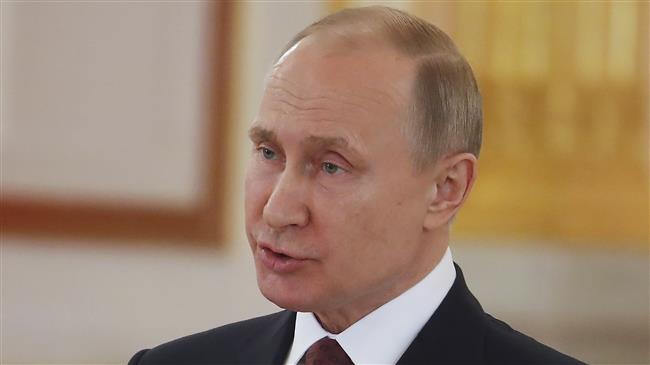


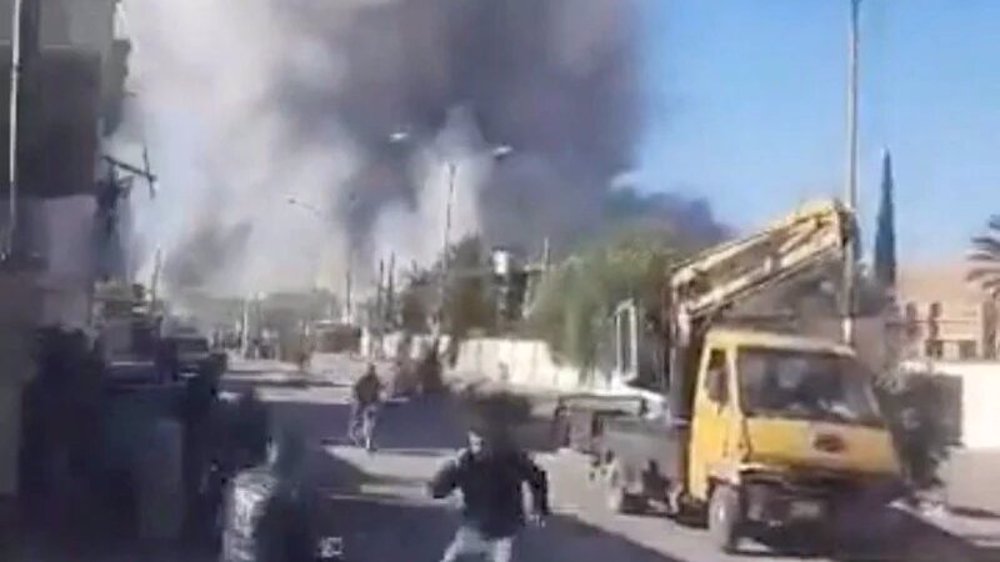
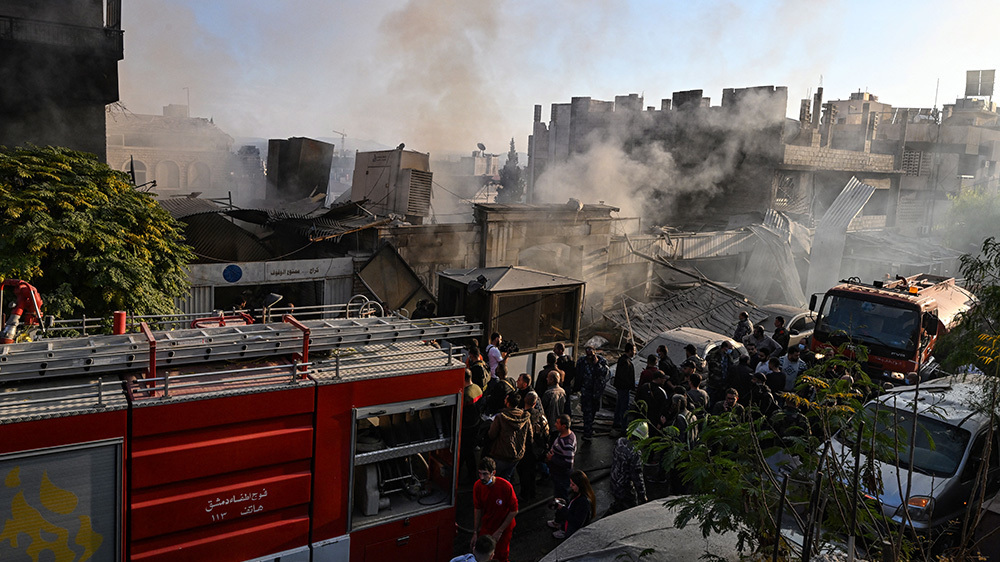
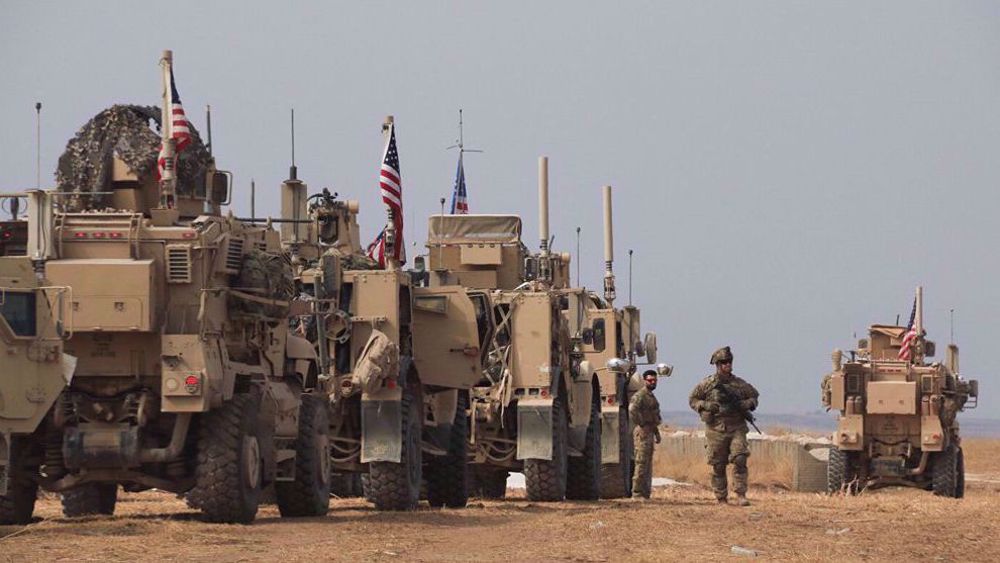



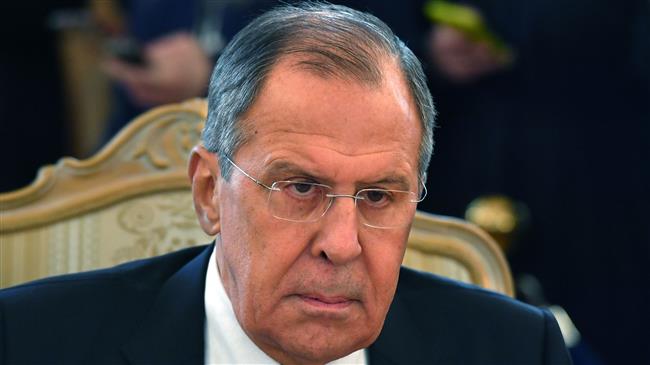

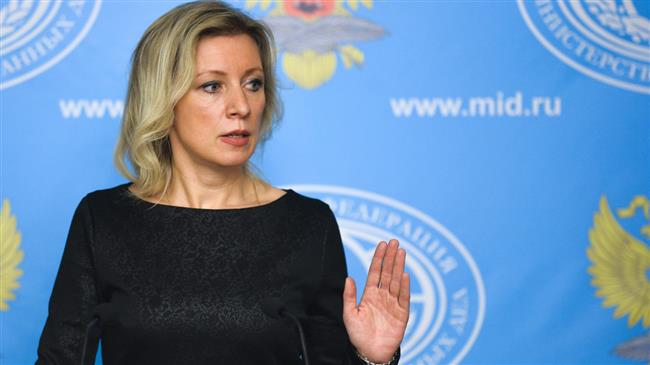


 This makes it easy to access the Press TV website
This makes it easy to access the Press TV website